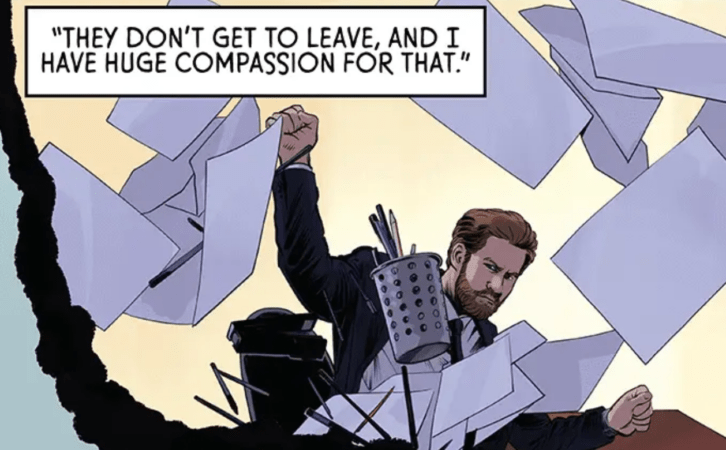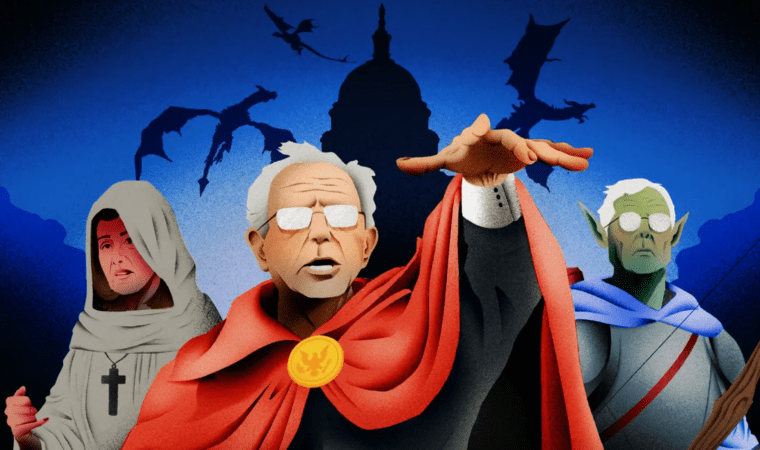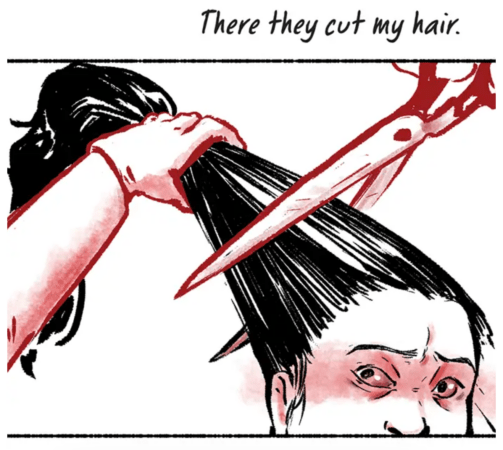Walt Hickey
Executive Editor, Sherwood
Telling the news through graphic novels
In a rarity for journalists, numbers have long been Walt Hickey’s passion. “I majored in applied mathematics with a concentration in probability statistics and a minor in computer science,” he said. “When you’re a math major and don’t have other hobbies, you go insane.”
Hickey saw the potential of combining his interests in data and journalism while working on Open Secrets, a database of campaign finance at the federal level for the Center for Responsive Politics. That was his first big indication that he could find work that merged his data and journalism skills.
He continued honing his interest in innovative storytelling at digital outlet Business Insider, winning the 2022 Pulitzer Prize in Illustrated Reporting for his work on “How I escaped a Chinese internment camp.” As of this writing, it’s only the second comic book to win a Pulitzer.
Hickey also worked at popular data blog fivethirtyeight.com, wrote for Marvel.com, and made a stop at ABC News to assist in their election coverage. He’s currently executive editor at Sherwood, the media arm of financial-services company Robinhood. He is also the author of “You Are What You Watch: How Movies and TV Affect Everything.”
By Tiffany Corr
I was an intern at Business Insider back in 2012, I left for a while, and then I came back because they were willing to invest in cool things.
A lot of my day job there was data-journalism related. I ran election coverage and updated live results, and I conducted polls for the newsroom. I also helped reporters doing in-depth data research for investigative features.
But then I also had this fun component of my job exploring how comics could reach audiences and tell stories that can’t be told in print or video.
Our job as journalists is to convey stories in a format that people can trust. As a data journalist, I believe we can marshal trust by including objective statistics. Stats are what bolster the story.
A comic book format does something different. It invites the reader in and takes them through something that they otherwise can’t see. Comics are effective in making you empathize. You see the world through the characters’ eyes, through their perspective.
As journalists, we constantly look for innovative ways to get people to empathize with other folks. The whole point of a comic’s format is reaching an audience with a familiarity about an issue that they’re unfamiliar with.
Using Comics to Get People to Care
We started with three comics at a time. If one of them landed, it would buy us a ticket for the next group. Some comics took months or the better part of a year, while others we were able to turn around in about six weeks.

I worked predominantly with comic book professionals: Josh Adams, an artist and an art director who has worked on all kinds of different comics, and a writer named Anthony Del Col who has a number of self-published works.
Together, we covered big issues such as the onset of the pandemic and the first impeachment of Donald Trump, which through the comic book format allowed us to reach audiences who maybe don’t have the patience to read a story. It gave them the opportunity to see exactly what drove those things.
We covered the insurrection, the attempts to kidnap the Michigan governor, and stories on influencers like Prince Harry and Meghan Markle.
We also made an interactive game called “Dungeons & Democracy,” inspired by “Dungeons & Dragons,” to show how broken the system is and why it favors gerontocracy. You can play as an older member and experience the various benefits of seniority that endures in our government, or you can play as a younger member and face the challenges of a system that’s designed against you.
I like working on innovative ways of getting people to care about the news and read our stories. It was also a good opportunity to highlight my colleagues’ work. We did stories on how redistricting affects the age of government, and how seniority benefits lawmakers and encourages them to stick around their jobs longer than they otherwise should. It was great to gamify and promote that work, but also put readers in the perspective of “Here’s exactly how the seniority in government benefits and hurts others.”
The Ultimate Recognition
As for the comics, we wanted to cover a few big issues and decided to dive into the story of Uyghur oppression in China. It’s turned out to be one of the stories that I’m most proud of.
It’s about this woman named Zumrat Dawut. She’s a mother of three based in Ürümqi, which is the capital of the Xinjiang region of China. She testified to the increased surveillance and oppression being done to Uyghurs. Her testimony eventually got her arrested and sent to an internment camp.
Zumrat’s husband worked tirelessly to get her out. She endured abuse and psychological torture, and only through a number of efforts was she able to get out. She and her husband escaped to the United States.
We adapted her story into a comic book format, and it won the 2022 Pulitzer Prize for Illustrated Reporting.
I was the editor on the piece. Anthony and I did the interviews and reporting. A lot of my job is ensuring that the comics have that similitude — fact checking, real depth and reality — that we as journalists require.
The thing that drew us to this story in the first place is that you do not get cameras inside a concentration camp. That’s a simple reality. We were struck by the complete lack of visual imagery. There were no cameras following Zumrat as she experienced what she experienced.
Human beings inherently need to see to believe. It can be hard to get a story like this through. We were able to use the medium of comics and, through deep reporting and interviews, do something really special.
Having worked in data for this long, I know that to the human mind a death is a tragedy, but 1,000 deaths becomes a statistic. Sometimes statistics aren’t effective in getting across the stakes of what’s happening. You have to focus on one person and look at that individual’s experience, and that ground truth will be able to speak for a lot of other people.
You’ll never be able to feel empathy for a million people at one time. The human spirit is not built like that. We do not have the capacity, though try we might.
Is Zumrat’s story unique? Absolutely not. Was her experience evocative of a lot of the different events that go on in China and how they specifically target a large group of people? Absolutely. As a result, it was a better way to get across why precisely this is a tragedy.
Connect with Walt Hickey
Personal Website | X | Newsletter | LinkedIn


